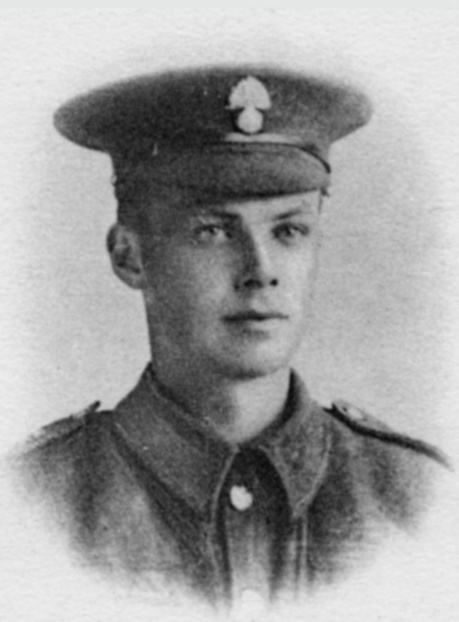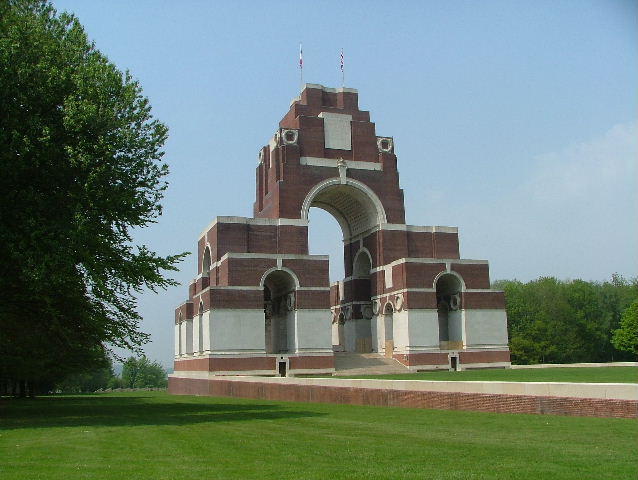Name
William Arthur Darrington
Circa 1894
Conflict
First World War
Date of Death / Age
27/07/1916
Rank, Service Number & Service Details
Private
25247
London Regiment (Royal Fusiliers)
2nd (City of London) Bn.
Awards: Service Medals/Honour Awards
British War and Victory medals
Cemetery/Memorial: Name/Reference/Country
THIEPVAL MEMORIAL
Pier and Face 8C, 9A and 16A
France
Headstone Inscription
NA
UK & Other Memorials
St Mary's Church Roll of Honour (Book), Hitchin, Stained Glass Window, Hitchin Boys Grammar School
Pre War
His father was Mr William Heath Morrell Darrington, the proprietor of a wholesale bookbinding business, and his mother was Selina (née Beckwith). At some point lived at Trevor House, Trevor Road, Hitchin. Born in Tottenham in north London, William (junior) had a brilliant academic career at the Hitchin Grammar School which he attended from 1903-1910. He obtained first class honours in the Senior Local Examinations and a high place in the Second Division of the Civil Service Examination. He left to go to Clark's College in London.
William (junior) was born around 1894 and was baptised in Tottenham on 7 March 1894. At that time his parents’ address was 77 Strawberry (or similar) Road, Tottenham. At that time William bookseller’s assistant. His parents married in 1893.
In 1901 the family were living at 38 Radcliffe Road, Hitchin. Present were both parents: William (29) and Selina (32). The father was now a bookbinder and employer. Their children were: William Arthur (7), Hilda (5) and Samuel (2). There was also a visitor present, William Morrell (8).
By 1911 the family were living at Conradi, Long Lane, Church End, N Finchley. Present were both parents, William (senior) still a bookbinder and employer and his workshop was at 17 Dean Street Westminster. The census recorded they had been married for 18 years with 7 children of whom 1 had died. Of the children listed above all were present, William was 17 and a civil services student. The family had additional siblings: Kenneth John (9), Bertram Parnell (7) and Parnell Miriam (4). A sister-in-law, Miriam Harwood (39) was visiting.
Officially William was recorded as born in Tottenham and living in Church End, Finchley, when he enlisted in Finchley.
He gave up a good position in February 1916 to join the 22nd Battalion Royal Fusiliers, having been recruited in Church End Finchley.
Wartime Service
Additional Information
After his death £3 19s 10d was authorised to go to his father on 24 November 1917. Later, a war gratuity of £3 was authorised to be paid to him on 15 October 1919.
His pension cards record William A M Darrington his father as his dependant, living first at 17 Elm Park Road, Church End, Finchley, London, however this was amended to Lower Bridge Farm, somewhere in North Devon. There are no details of any pension awarded. Subsequently, his father died and the details on the card were amended to his mother Silvia 35 Essex Road, Finchley, London.
Acknowledgments
Adrian Dunne, David C Baines, Jonty Wild



